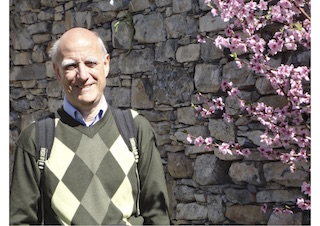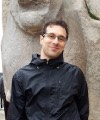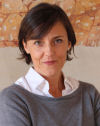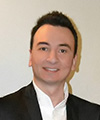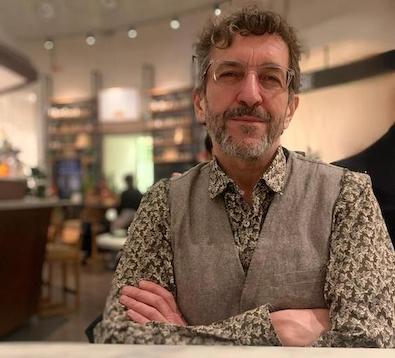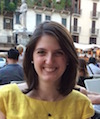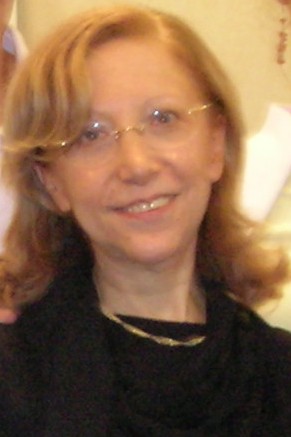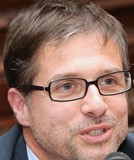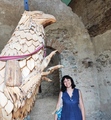Studying at the University of Verona
Here you can find information on the organisational aspects of the Programme, lecture timetables, learning activities and useful contact details for your time at the University, from enrolment to graduation.
Academic calendar
The academic calendar shows the deadlines and scheduled events that are relevant to students, teaching and technical-administrative staff of the University. Public holidays and University closures are also indicated. The academic year normally begins on 1 October each year and ends on 30 September of the following year.
Course calendar
The Academic Calendar sets out the degree programme lecture and exam timetables, as well as the relevant university closure dates..
| Period | From | To |
|---|---|---|
| Semestrino IA | Sep 28, 2015 | Nov 14, 2015 |
| Semestrino IB | Nov 16, 2015 | Jan 16, 2016 |
| Semestrino IIA | Feb 22, 2016 | Apr 16, 2016 |
| Semestrino IIB | Apr 18, 2016 | Jun 4, 2016 |
| Session | From | To |
|---|---|---|
| Sessione invernale | Jan 18, 2016 | Feb 20, 2016 |
| Sessione estiva | Jun 6, 2016 | Jul 30, 2016 |
| Sessione autunnale | Sep 1, 2016 | Sep 30, 2016 |
| Session | From | To |
|---|---|---|
| Sessione estiva | Jul 5, 2016 | Jul 6, 2016 |
| Sessione autunnale | Nov 22, 2016 | Nov 23, 2016 |
| Sessione invernale | Apr 3, 2017 | Apr 8, 2017 |
| Period | From | To |
|---|---|---|
| Festa di Ognissanti | Nov 1, 2015 | Nov 1, 2015 |
| Festa dell'Immacolata | Dec 8, 2015 | Dec 8, 2015 |
| Vacanze di Natale | Dec 23, 2015 | Jan 6, 2016 |
| Vancanze di Pasqua | Mar 24, 2016 | Mar 29, 2016 |
| Festa della Liberazione | Apr 25, 2016 | Apr 25, 2016 |
| Festa dei Lavoratori | May 1, 2016 | May 1, 2016 |
| Festa del S. Patrono S. Zeno | May 21, 2016 | May 21, 2016 |
| Festa della Repubblica | Jun 2, 2016 | Jun 2, 2016 |
| Vacanze estive | Aug 8, 2016 | Aug 15, 2016 |
Exam calendar
Exam dates and rounds are managed by the relevant Culture and Civilisation Teaching and Student Services Unit.
To view all the exam sessions available, please use the Exam dashboard on ESSE3.
If you forgot your login details or have problems logging in, please contact the relevant IT HelpDesk, or check the login details recovery web page.
Academic staff
 angela.alaimo@univr.it
angela.alaimo@univr.it
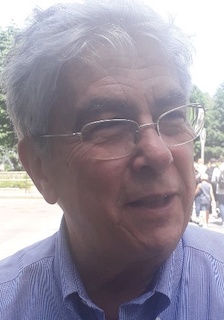
Avezzu' Guido
 guido.avezzu@univr.it
guido.avezzu@univr.it
 augusto.barbi@univr.it
augusto.barbi@univr.it

Bassetti Massimiliano
 massimiliano.bassetti@univr.it
massimiliano.bassetti@univr.it
 045802 8376
045802 8376
 evita.calabrese@univr.it
evita.calabrese@univr.it
Carnero Roberto
 roberto.carnero@univr.it
roberto.carnero@univr.it
 alberto.cavarzere@univr.it
alberto.cavarzere@univr.it

Chiecchi Giuseppe
 giuseppe.chiecchi@univr.it
giuseppe.chiecchi@univr.it
 +39 045802 8117
+39 045802 8117
 federica.gonzato@univr.it
federica.gonzato@univr.it
 elisa.lerco@univr.it
elisa.lerco@univr.it
 francesco.lupi@univr.it
francesco.lupi@univr.it

Mastrocinque Attilio
 attilio.mastrocinque@univr.it
attilio.mastrocinque@univr.it
 +39 045802 8386
+39 045802 8386
 flavia.palma@univr.it
flavia.palma@univr.it

Pasini Roberto
 pasini.roberto@univr.it
pasini.roberto@univr.it
 +39 045802 8121
+39 045802 8121
Peresani Marco
 dino.piovan@univr.it
dino.piovan@univr.it
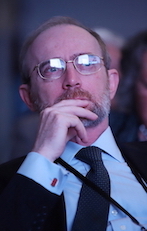
Pozzo Riccardo
 riccardo.pozzo@univr.it
riccardo.pozzo@univr.it
 +390458028053
+390458028053
 alberto.scandola@univr.it
alberto.scandola@univr.it
Tani Stefano
 stefano.tani@univr.it
stefano.tani@univr.it
 +39 045802 8110
+39 045802 8110
 sonia.trovato@univr.it
sonia.trovato@univr.it
 gianmaria.varanini@univr.it
gianmaria.varanini@univr.it
Study Plan
The Study Plan includes all modules, teaching and learning activities that each student will need to undertake during their time at the University.
Please select your Study Plan based on your enrollment year.
1° Year
| Modules | Credits | TAF | SSD |
|---|
One course to be chosen among the followingForeign language B1 (CB Test)2° Year activated in the A.Y. 2016/2017
| Modules | Credits | TAF | SSD |
|---|
Latin literature (i)
One course to be chosen among the following2 course to be chosen among the following2 course to be chosen among the following3° Year activated in the A.Y. 2017/2018
| Modules | Credits | TAF | SSD |
|---|
One course to be chosen among the following3 course to be chosen among the following| Modules | Credits | TAF | SSD |
|---|
One course to be chosen among the followingForeign language B1 (CB Test)| Modules | Credits | TAF | SSD |
|---|
Latin literature (i)
One course to be chosen among the following2 course to be chosen among the following2 course to be chosen among the following| Modules | Credits | TAF | SSD |
|---|
One course to be chosen among the following3 course to be chosen among the following| Modules | Credits | TAF | SSD |
|---|
Legend | Type of training activity (TTA)
TAF (Type of Educational Activity) All courses and activities are classified into different types of educational activities, indicated by a letter.
Urban geography (p) (2017/2018)
Teaching code
4S01967
Teacher
Coordinator
Credits
6
Language
Italian
Scientific Disciplinary Sector (SSD)
M-GGR/01 - GEOGRAPHY
Period
First half of Semester 1 , Second half of Semester 1
Learning outcomes
The Urban Geography course aims at teaching students new points of view for the analyses of the city. This approach aims at understanding not just the facts, but also the interpretations provided by the residents, according to the hermeneutical paradigm of knowledge. To that end, the course stimulates the students to develop a scientific curiosity towards the geographical areas and the social actors they study (starting from the city and its inhabitants).
Teaching methods
Lectures, Classroom Exercises, Seminars, Surveys & Inspections.
LEARNING OUTCOMES
1. KNOWLEDGE AND COMPREHENSION ABILITIES
The students shall acquire those tools that can help them understand the most recent evolutions of urban history (globalization, de-urbanization, etc.) and the implications of the use of maps and models. This knowledge will help the students navigate through urban studies, by adopting the peculiar approach of social sciences.
This goal is achieved by attending lectures and seminars, participating in on-the- spot inspections, and library researches.
The educational tools used for this goal are Power Point presentations, along with geography handbooks and manuals.
2. ABILITY TO APPLY KNOWLEDGE AND COMPREHENSION
The students will apply the theoretical concepts they have learnt during the lectures and their individual study in a series of practical activities in classroom. The following activities will help the students apply their knowledge: classroom exercises, seminars, inspections, individual or group researches.
3. JUDGEMENT AUTONOMY
Each student is invited, both individually and in group, to express his/her own personal opinions on the area he/she has studied and the people he/she has met.
The students will be invited to study and acquire the best practices of social participation achieved through qualitative techniques of analysis, as well as developing teamworking skills and the ability to act as facilitators in participation processes.
4. COMMUNICATION ABILITIES
Teamworking and seminars allow the students to acquire communication abilities by using diverse media, like oral presentations, graphical representations (e.g. mental maps), written texts and Power Point presentations. The final goal is to understand and master the diverse languages used by residents, city users, politicians, etc.
The students will discuss these topics through oral presentations, graphical representations and written texts.
The educational tools used for these goals include thematic maps, ideograms, photographic and hypertextual presentations.
Program
SUGGESTED BBLIOGRAPHY
For attending students:
1) DEMATTEIS G., LANZA C., Le città del mondo. Una geografia urbana, Torino, UTET, 2014 (seconda edizione; I capitoli indicati a lezione da integrare con i materiali forniti durante il corso);
2) DALL’Ò G., Smart city, Bologna, Il Mulino, 2014.
For non-attending students:
1) DEMATTEIS G., LANZA C., Le città del mondo. Una geografia urbana, Torino, UTET, 2014 (seconda edizione);
2) ROSSI U., VANOLO A., Geografia politica urbana, Roma-Bari, Laterza, 2010;
3) One chosen from this two options:
- DALL’Ò G., Smart city, Bologna, Il Mulino, 2014;
- VIANELLO M., Smart Cities. Gestire la complessità urbana nell’era di Internet, Santarcangelo di Romagna (RN), Maggioli editore, 2013.
PROGRAMM
Lesson 1
The key words of urban geography
Lesson 2
Geographical representations
Lesson 3
The geographer in the city: methods of analysis
Lesson 4
Definitions of town and city. Cities of trade, of power, of production, of knowledge and culture, of tourism.
Lesson 5
From the country to the city; the urbanization of the world. Counter-urbanization and de-urbanization. Urban life cycle.
Lesson 6
From the city to the country: urban growth and dispersion. Metropolitan areas.
Lesson 7
Urban functions and urban growth. Tertiary and quaternary sectors.
Lesson 8
Urban populations. Ghettos and gentrification.
Lesson 9
Urban systems and urban networks. Global cities.
Lesson 10
Smart cities: sostainable, smart and creative
Lesson 11
Politics as representation. Images and representations in the strategies of urban development.
Lesson 12
Politics as government. Urban neoliberalism: from the triumph to the crisis.
Lesson 13
Politics as protest. Urban justice: struggles and reclaiming. Conclusions and assessment of the experiences done so far.
Examination Methods
Oral Exam and (for attending students) participation in teamworking in class.
Evaluation criteria
The student will have to answer at least three oral questions, on all of the topics described in the list below (see 'Suggested Bibliography'), as studied in the suggested readings list provided below. There will be at least one question for each suggested book.
The final evaluation aims at appraising whether the student possesses a good knowledge and comprehension of the topics, and whether he/she has acquired the ability to interpret and the autonomously judge actual cases (i.e. the geographical areas he/she studied or analyzed).
The lowest evaluation grade will be achieved if the student proves his/her knowledge and comprehension of the main subjects, at least within a general framework, and can apply that knowledge. The student shall also be able to present to the examiner, while competently discussing, the topics related to Urban Geography in a successful way. Below that threshold, the student will not be able to pass the examination. On the contrary, the more the student will be able to interact with the examiner and discuss the topics, and the more he/she will prove to have acquired the basics of Urban Geography and of the techniques of qualitative research, the higher will the evaluation grade be.
The evaluation grades range is comprised between 18 and 30, according to the following criteria:
Excellent (30 – 30 e lode): Excellent knowledge of the subjects studied in the course, excellent language skills, good analytical and interpretative capacity; the student is fully able to apply qualitative social techniques to interpret geographic phenomena.
Very good (26-29): Good mastery of the subjects studied in the course, very good language skills; the student is able to apply qualitative social research techniques to interpret geographic phenomena.
Good (24-25): Knowledge of the main subjects studied in the course, good language skills; the student shows a limited ability to apply qualitative techniques to interpret geographic phenomena.
Average (21-23): Basic knowledge of some subjects studied in the course, adequate language skills; poor ability to autonomously apply qualitative techniques to interpret geographic phenomena.
Pass (18-20): Minimal knowledge of some geographic subjects and of the technical language; very poor or inexistent ability to autonomously apply qualitative techniques to interpret geographic phenomena.
Fail: The student does not have an acceptable knowledge of the subjects studied in the Urban Geography course.
ERASMUS students are requested to contact the teacher at the beginning of the course to agree on the teaching and examination methods together.
Type D and Type F activities
Modules not yet included
Career prospects
Module/Programme news
News for students
There you will find information, resources and services useful during your time at the University (Student’s exam record, your study plan on ESSE3, Distance Learning courses, university email account, office forms, administrative procedures, etc.). You can log into MyUnivr with your GIA login details: only in this way will you be able to receive notification of all the notices from your teachers and your secretariat via email and also via the Univr app.
Graduation
List of thesis proposals
| theses proposals | Research area |
|---|---|
| tesi di Glottologia, Storia comparata, Linguistica storica | ENGLISH LANGUAGE - Grammar and Syntax – Grammatik und Syntax |
| tesi di Glottologia, Storia comparata, Linguistica storica | GERMANIC LANGUAGE - Dialectology - Dialektologie |
| tesi di Glottologia, Storia comparata, Linguistica storica | HUMANITIES & SOCIAL STUDIES - HUMANITIES & SOCIAL STUDIES |
| tesi di Glottologia, Storia comparata, Linguistica storica | Indo-European languages & literatures - Indo-European languages & literatures |
| tesi di Glottologia, Storia comparata, Linguistica storica | LINGUISTICS - LINGUISTICS |
Gestione carriere
Linguistic training CLA
Student mentoring
Requisiti classi di abilitazione insegnamento
Requisiti necessari per accedere alle classi di abilitazione per l'insegnamento.
vedi allegato pdf
Inoltre, per informazioni sui 24 CFU nelle discipline antropo-psico-pedagogiche e nelle metodologie e tecnologie didattiche, si veda -> LINK
Documents
| Title | Info File |
|---|---|
|
|
pdf, it, 307 KB, 30/11/21 |
Student login and resources
Modalità e sedi di frequenza
La frequenza non è obbligatoria.
Maggiori dettagli in merito all'obbligo di frequenza vengono riportati nel Regolamento del corso di studio disponibile alla voce Regolamenti nel menu Il Corso. Anche se il regolamento non prevede un obbligo specifico, verifica le indicazioni previste dal singolo docente per ciascun insegnamento o per eventuali laboratori e/o tirocinio.
È consentita l'iscrizione a tempo parziale. Per saperne di più consulta la pagina Possibilità di iscrizione Part time.
Le sedi di svolgimento delle lezioni e degli esami sono le seguenti:
- Polo Zanotto (vicino si trova il Palazzo di Lettere)
- Palazzo ex Economia
- Polo Santa Marta
- Istituto ex Orsoline
- Palazzo Zorzi (Lungadige Porta Vittoria, 17 - 37129 Verona)








